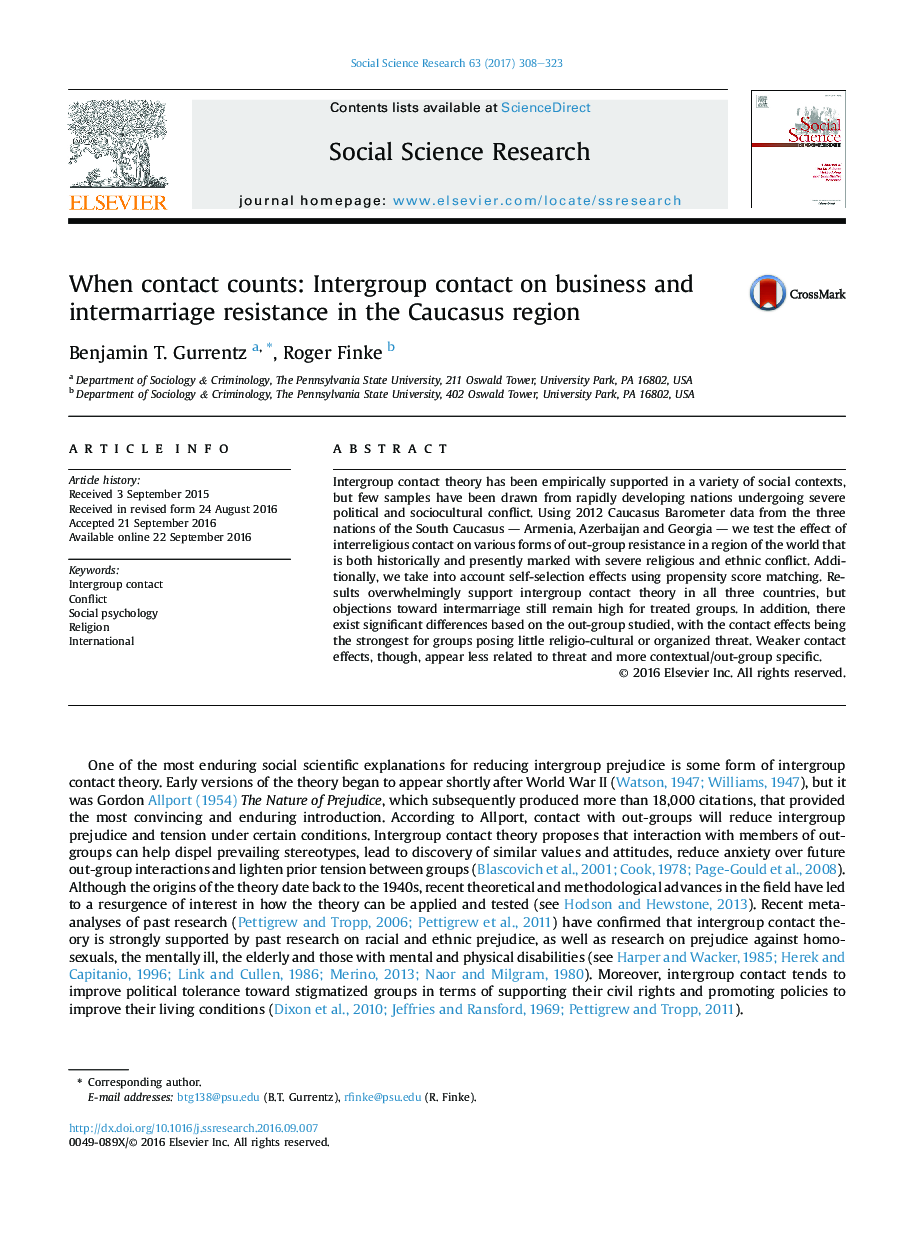| Article ID | Journal | Published Year | Pages | File Type |
|---|---|---|---|---|
| 5047002 | Social Science Research | 2017 | 16 Pages |
â¢The role of intergroup contact in high conflict areas is generally understudied.â¢We test intergroup contact in the Caucasus area, where social conflict persists.â¢Using propensity score matching, intergroup contact reduces out-group resistance.â¢The effect sizes are stronger for out-groups posing little cultural or organized threat.â¢However, objections toward intermarriage remain high despite contact.
Intergroup contact theory has been empirically supported in a variety of social contexts, but few samples have been drawn from rapidly developing nations undergoing severe political and sociocultural conflict. Using 2012 Caucasus Barometer data from the three nations of the South Caucasus - Armenia, Azerbaijan and Georgia - we test the effect of interreligious contact on various forms of out-group resistance in a region of the world that is both historically and presently marked with severe religious and ethnic conflict. Additionally, we take into account self-selection effects using propensity score matching. Results overwhelmingly support intergroup contact theory in all three countries, but objections toward intermarriage still remain high for treated groups. In addition, there exist significant differences based on the out-group studied, with the contact effects being the strongest for groups posing little religio-cultural or organized threat. Weaker contact effects, though, appear less related to threat and more contextual/out-group specific.
